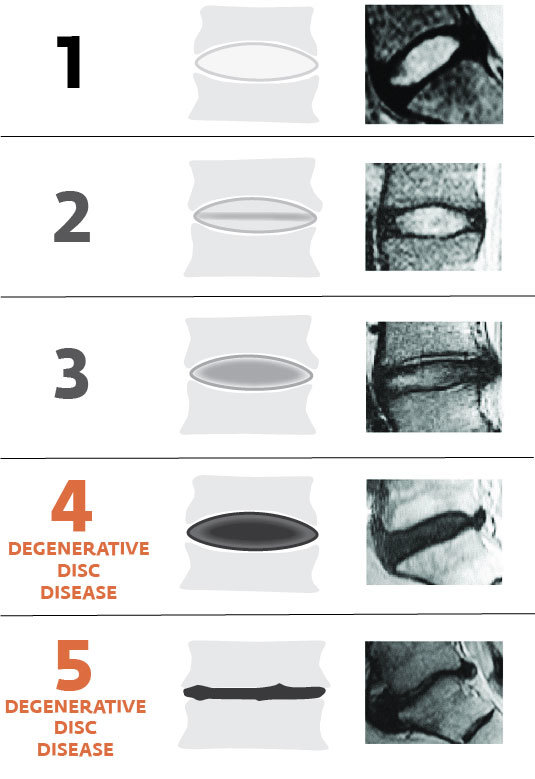Degenerative Disc
The experts at Frisco Spine specialize in Degenerative Disc Disease. You deserve the most advanced diagnostic and treatment technologies and techniques, including specialized spine imaging, because a healthy spine lets you have more mobility, less pain and increased productivity.
When surgery is required, our board-certified neurosurgeons can often perform less-invasive procedures to reduce recovery time so you can get back to your life quicker.
What is Degenerative Disc Disease?
Degenerative Disc Disease is a condition that occurs when one or more discs between the vertebrae deteriorates or breaks down, causing pain, and making it more difficult to do every-day activities like getting out of bed or carrying things around the house.
Over time, joints begin to wear out. Wear and tear of the joints is not only common in the knees and the hips, but also in the spine. Degenerative Disc Disease is not a disease, but rather “degenerative” describes changes in the spinal discs that may cause pain.
Degenerative Disc Disease is very common. Most people’s spinal discs degenerate over time, so nearly everyone’s spinal discs show signs of wear as they age. Degenerative Disc Disease may cause both back and neck pain, as well as numbness or tingling. Patients may experience pain, numbness, or tingling. Sometimes there are no symptoms, but the most common early symptom is pain, and weakness in the back that radiates to another area. Injury, genetics, and lifestyle can all increase your risk factors for Degenerative Disc Disease.
Stages of Degenerative Disc Disease

Diagnosis
Treatment may include occupational or physical therapy, medication, lifestyle improvements, such as losing weight. Patients who do not respond to conservative therapies may consider surgery. For our neurosurgical experts to initiate a treatment plan, they will need to see your imaging. Please contact the office at (972) 377-9200 to schedule your initial appointment and begin your treatment process.
Prevention
Degenerative disc disease is associated with the aging process, and cannot be prevented in all cases. However, a healthy lifestyle, including diet and exercise, may improve patient outcomes.
- Diet: A healthy diet helps maintain healthy bones. Calcium, iron, and zinc all help maintain healthy bone structure.
- Exercise: Exercise increases blood flow. Pumping blood throughout the body supplies healing nutrients and oxygen and preserves function of the spine and surrounding muscles.
- Posture: Improving posture can help spinal health. Posture isn’t limited to the way people stand – it’s also how they sit, walk, sleep, bend, and lift.
- Lifestyle: Smoking and alcohol consumption affect overall health, including spine health.




